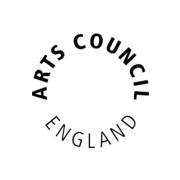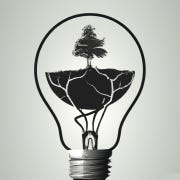This week's best things
Community-building for digital folks, responsible AI, magical summer questions, learning from failure, the future of essays, Greg’s fridge, Art UK’s quiet triumph, knowing machines, Glastonbury at scale, r/preformances, and Wiki Radio.

Summer briefly arrived on the west coast of Sweden this week. Also I had a few days off, so this is a slightly shorter edition than normal.
Here are some good things...
The next community discussion(s)
Following on from last week's initial session exploring the idea and potential of a new community around digital work in our sector, I've scheduled the next conversation - which will take place (twice) on Monday 11th August.
Because of the breadth of people interested - we have people across timezones include both coasts of the USA, and New Zealand who want to be involved - I have scheduled x2 sessions on that day, so hopefully everyone who wants to join, can join.
The August session will explore practical steps we could take together to start to pilot some ideas and work out what's worth pursuing. I want to make sure that these ideas continue to be grounded in the needs and realities of the people doing digital work so please, if you have ideas or just want to hear what's being discussed, do join us.
The session will take place on Zoom, and will last 45 minutes. Register via the links below:
- Monday 11th August: 10:30am - 11.15am (Gothenburg) / 9.30am - 10.15am (UK) / 8.30pm - 9.15pm (Auckland)
- Monday 11th August: 5:00pm - 5.45pm (Gothenburg) / 4.00pm - 4.45pm (UK) / 11.00am - 11.45am (New York) / 8.00am - 8.45am (San Francisco)
And if you haven't yet, please do share your your experience of doing digital work - and the support that you might find useful - via this (very short) survey. Frustrations shared so far include the lack of information and transparency about how much things should cost, challenges with recruitment, and the difficulties of meaningfully measuring interactions beyond 'visits'.
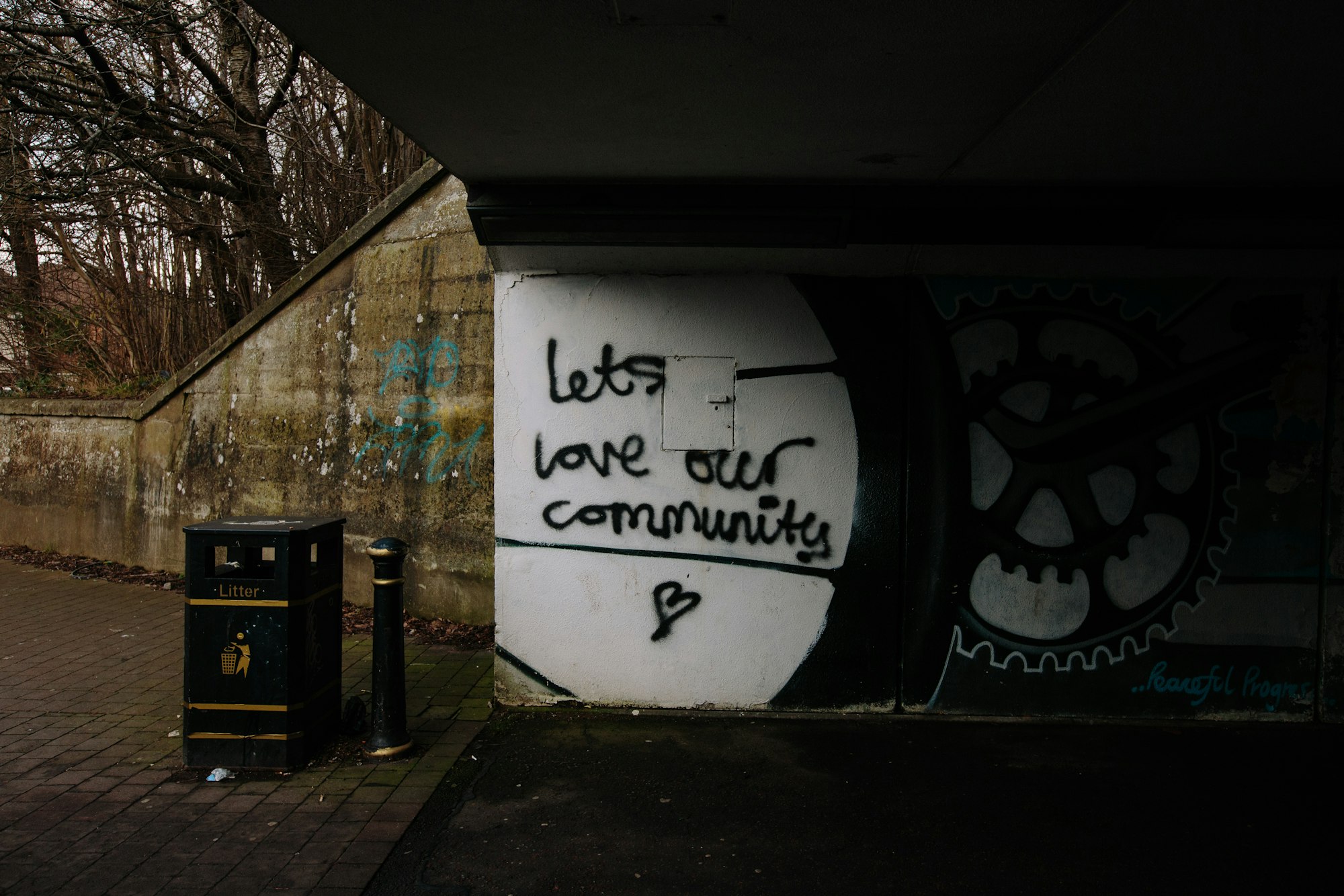
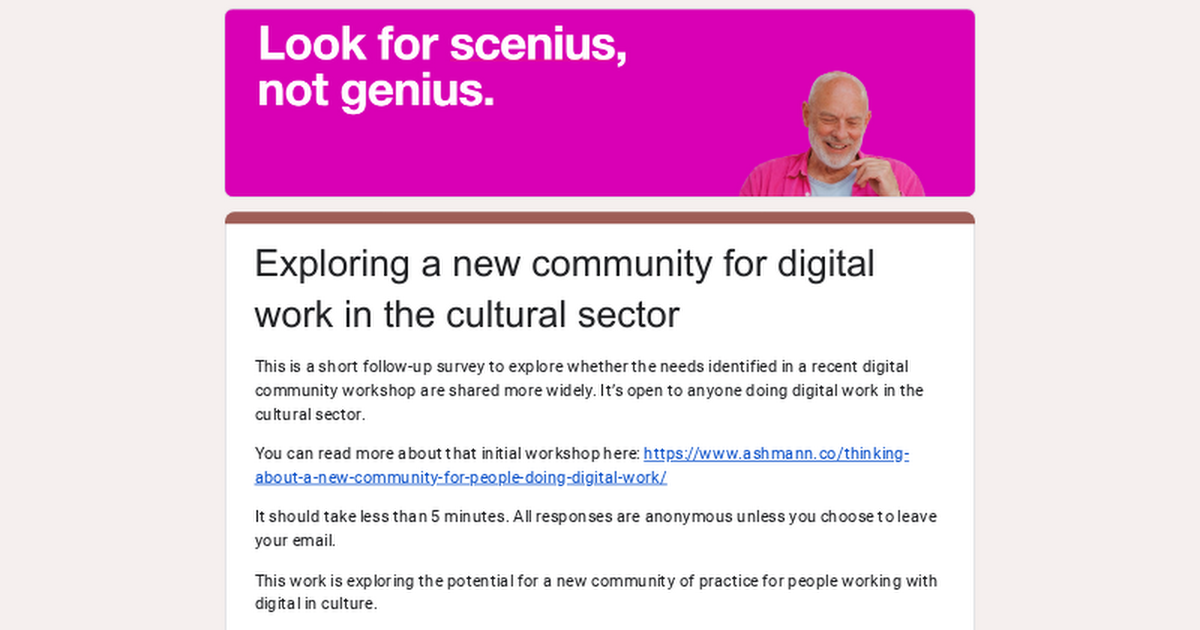
Responsible AI Practical Toolkit
Some useful-looking new resources from Arts Council England around helping cultural organisations to develop responsible AI policy and practice.
"developing an AI policy is more about people than technology. It should reflect your organisation’s values, how much risk you’re willing to take, and the sector you work in."
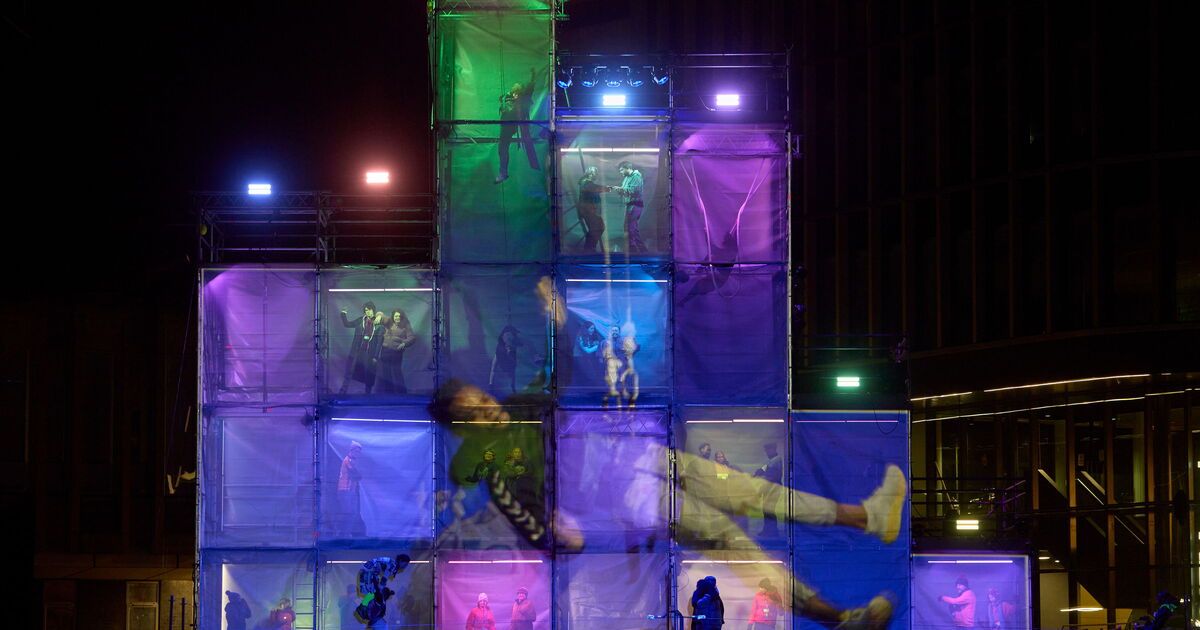
15 magical questions to unlock summer
A nice set of prompts from Priya Parker.
"A Magical Question is one that everyone in YOUR group is interested in answering and everyone is interested in hearing everyone else’s answer. So, as always, take these with a grain of salt! YOU know your group and context best.".
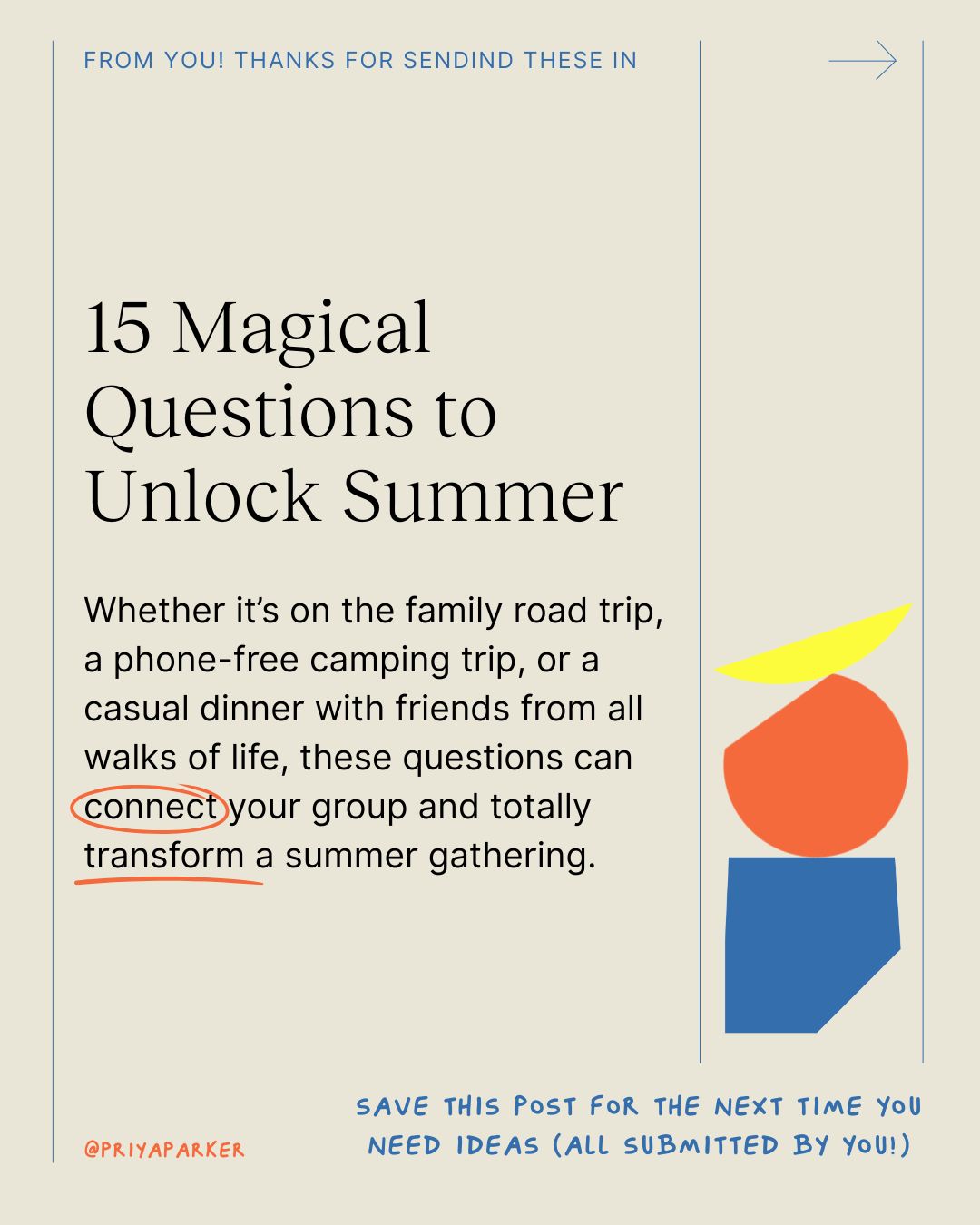
Anthropic destroyed millions of print books to build its AI models
Probably not really news, but it feels symptomatic of the wider...everything...
"On Monday, court documents revealed that AI company Anthropic spent millions of dollars physically scanning print books to build Claude, an AI assistant similar to ChatGPT. In the process, the company cut millions of print books from their bindings, scanned them into digital files, and threw away the originals solely for the purpose of training AI—details buried in a copyright ruling on fair use"

Beyond the Promise webinars
On Monday Tash Willcocks and I discussed learning cultures, reflection, and the value of acknowledging failure.
You can catch up on the recording of that webinar, and the two other webinar in the series here.
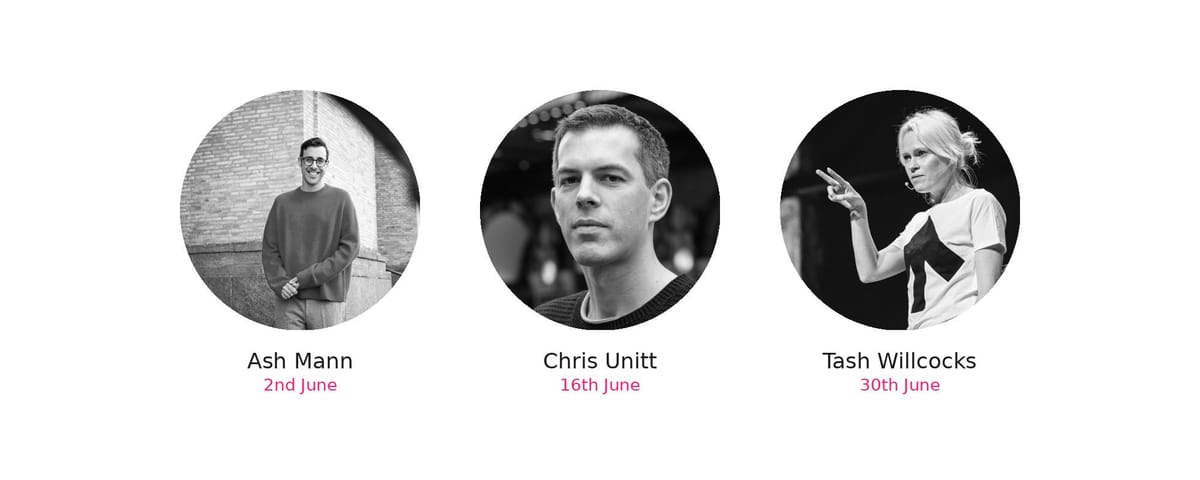
Greg's Fridge
"Leave a note on my fridge for anyone to see. Notes are anonymous and anyone can leave one, so please be nice – spam or otherwise insensitive stuff will be removed. My fridge is only so big, so no more than 100 characters per note!"
I Love Generative AI and Hate the Companies Building It
"I use generative AI every day — for everything from finding Stardew Valley strategies to writing letters of recommendation I’d otherwise avoid. It’s my brainstorming buddy, my writing partner, my research intern, my creative toy. I have paid for ChatGPT, Claude.ai and Gemini. I have been all in. Which is exactly why this ranking pisses me off: I love this technology,but hate how these companies are making it.
I worked in tech through the early internet. I was there for the “move fast and break things” era, working with companies that were curious but naive. I watched that naive optimism create surveillance capitalism, election manipulation, and social media addiction. I’m not doing that again.
This time, I want to be a grown-up about the technology I love. Since I can’t use generative AI ethically — spoiler alert: there are no ethical options — I decided to rank the companies from most to least evil so I can at least choose my harm reduction strategy."

Wiki Radio
A really nicely-executed project, an audio player that randomly plays audio uploaded to Wikimedia.
Whilst I've been writing this I've had Vivaldi, a news broadcast about the 1992 LA Riots, music box notes, Welsh folk music, "uneasy rustling ambience", clarinet improvisation, and some Hebrew chanting.
I can't promise it'll always be musical, or even enjoyable, but it's a nice internet idea

The Death of the Student Essay—and the Future of Cognition
Spotted via Tash Willcocks, I'll simply copy her framing because it's better than anything I could come up with:
I like that its separating out what AI does, not taking one stance and screaming burn the witch, whilst ignoring that she helped cure the village children, even tho I feel the title implies that, theres fairness in there to, and they have centreed on one area of concern, not throwing the whole thing in.
"When artificial intelligence is used to diagnose cancer or automate soul-crushing tasks that require vapid toiling, it makes us more human and should be celebrated. But when it sucks out the core process of advanced cognition, cutting-edge tools can become an existential peril. In the formative stages of education, we are now at risk of stripping away the core competency that makes our species thrive: learning not what to think, but how to think"
"Every piece of technology can either make us more human or less human. It can liberate us from the mundane to unleash creativity and connection, or it can shackle us to mindless robotic drudgery of isolated meaninglessness.Contrary to popular opinion, the latter option is not inevitable. We get to choose whether—and how—we adopt technology that can eviscerate our humanity."
Alas, there is a group of people—let’s call them, hm, how about “fools”—who believe there is no important distinction between an AI-generated summary of a book and the book itself.

How Art UK provides online access to more than 500,000 artworks in British collections
A good background piece on the work of Art UK over the last 20+ years.
"In 2003, an initiative was launched at the National Gallery in London to document every oil painting held in public art collections in the United Kingdom. Surprising as it may seem, no one had ever thought to do this before. It was time to rescue many of the nation’s paintings from undeserved obscurity.
The task facing the team of researchers and photographers was monumental: not only were paintings to be found in every corner of England, Scotland, Wales and Northern Ireland, but they were held by nearly every public body. Ninety per cent of the UK’s national art collection is not on view but kept in storage or in institutions that do not have regular public access. About 80 per cent is housed in museums; the rest is in hospitals, universities, libraries, town halls, even schools.
Artworks can be found in places as far north as the Pier Arts Centre in Stromness, Orkney, and as far south as Geevor Tin Mine, near Penzance. Added to this are paintings held in country houses owned by English Heritage and the National Trust.
It took 12 years to complete the initial project, and the outcome is a stunning visual record of the country’s heritage, consisting of 212,000 oil paintings. It is one of the greatest cultural initiatives ever undertaken and has been likened, in its egalitarian spirit, to Nikolaus Pevsner’s peerless architectural guides to the British Isles. And yet few outside the art world have ever heard of the project, which since 2016 has been known as Art UK."
A mirror
Allow access to your webcam and it gives you a feed rendered using Japanese characters which is sort of eerie.
Knowing Machines
"Knowing Machines is a research project tracing the histories, practices, and politics of how machine learning systems are trained to interpret the world.
We are developing critical methodologies and tools for understanding, analyzing, and investigating training datasets, and studying their role in the construction of “ground truth” for machine learning. Our research addresses how datasets index the world, make predictions, and structure knowledge cultures. Working with an international team, we aim to support the emerging field of critical data studies by contributing research, reading lists, research tools, and supporting communities of inquiry that are focused on the foundational epistemologies of machine learning."

Glastonbury Festival Map Overlay
See how big the Glastonbury Festival is compared to anywhere in the world (spoiler: it's big).

r/preformances
A reddit dedicated to sharing recordings of live performances from before the band/artist became famous. Includes artists like The BeeGees, Lady Gaga, Nirvana, The B-52s, Rage Against The Machine, and loads of others.
This week's consumption
We saw two amazing concerts this week: Anohni at Dalhalla (beautiful, extraordinary, harrowing) and Sparks (triumphant, joyous, incredible) in Copenhagen.
Most of the rest of the week was taken up travelling between those gigs (poor planning on my part).
Please enjoy this old Anohni performance of Hope There's Someone, this reduced me to a blubbering wreck when she played it on Tuesday.
Digital Works Podcast assortment
I've been hosting the Digital Works Podcast for five and a half years now, there are now over 60 episodes exploring all sorts of different digital things. I thought I'd start sharing a few episodes from the back catalogue.
So here's a random selection of a few of the episodes from the last few years.
April 2020 - Louise Cohen (former Royal Academy of Art) on the importance of strategy, and getting institutional buy-in
February 2023 - Hilary Knight (former AEA and Tate) on the importance of team culture, the value of being entertaining, and the strategic role of digital
See you next week
Thanks for reading all the way to the end. Please enjoy this assortment of three slightly strange / terrible / interestingly designed sites:
- some sort of portfolio thing?
- a project about how technology could be more 'fulfilling'
- a glitchy, borderline-unusable thing from the Netherlands.
To finish, a quick reminder that I'm a consultant who helps cultural organisations do better digital work.
I'm currently working with organisations on things involving:
- user research to inform digital investment priorities,
- technical strategy,
- leadership development,
- 'critical friend' advice,
- project governance,
- digital strategy,
- and digital readiness.
If it sounds like I could be useful, then let's chat.


